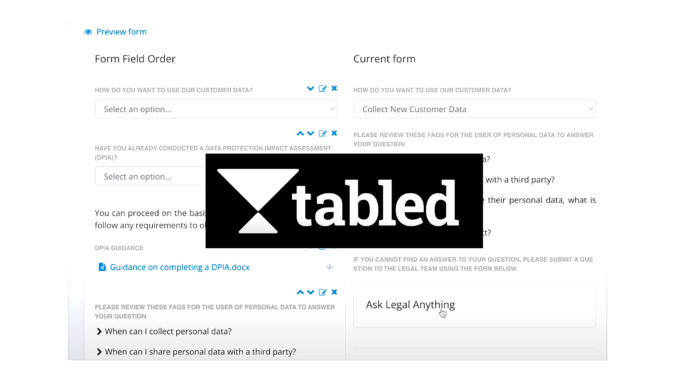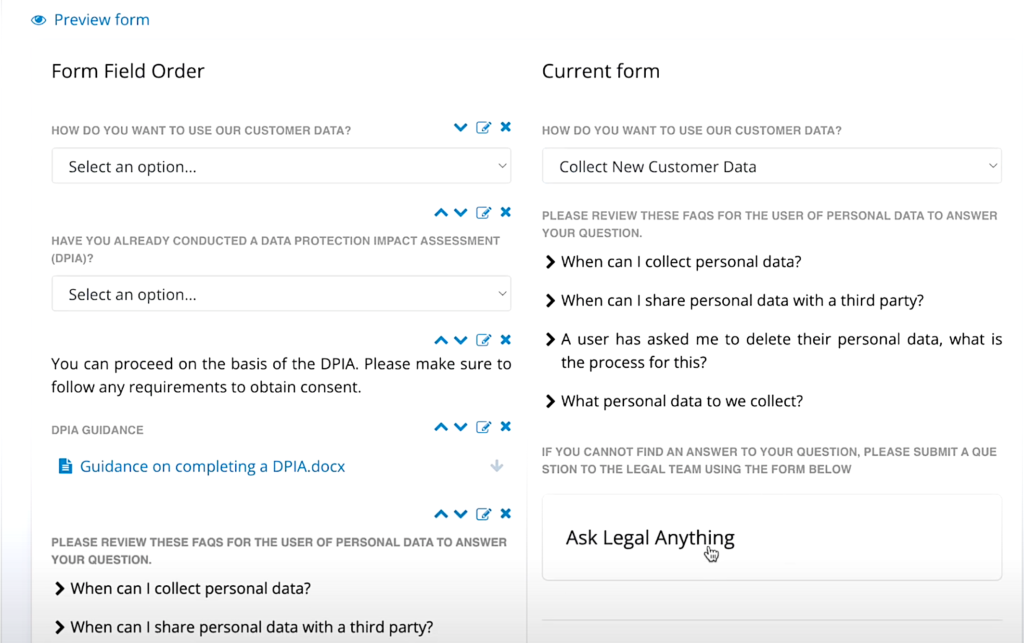
Tabled, the matter management platform, has launched a self-service toolkit to allow businesses to create ‘legal front doors’ for doc creation and to allow staff to access company policies so they don’t have to engage with the legal team.
Below is a video of how the toolkit works, showing how to build a self-serve portal for data privacy needs.
The company told this site that ‘existing clients have already been road testing the tools for a number of months and use cases have included building workflows for GDPR, financial promotion guidance and policy access’.
They also stressed that this is all very no-code and you don’t have to worry about being a tech genius to build very handy self-serve systems using their toolkit.

Paul Massey, who founded Tabled after working as a GC for a number of years, said: ‘As a GC at a rapidly growing Fintech, I was constantly asked the same questions on topics such as data protection, financial promotion rules or employee share options. This wasted a lot of time for me, my team and our clients. To help in-house legal teams scale up more efficiently we have created this Toolkit for client self-service.
‘We created Tabled to enable swift adoption of tools to unlock data and drive efficiencies in legal and compliance teams. This new Client Self-Service Toolkit provides a quick and easy way for legal teams to empower clients to find their own legal answers to save legal time and reduce risk across the business.
‘We want to make tech simple, helping legal teams to get started with small steps and then iterate and add more automation services. Once legal teams are capturing data through a legal front door like Tabled, they can quickly start to see where process and resource allocation can be improved, including with client self-service.’
Is this a big deal? The more self-serve the better one could argue – at least if it is done right. Legal teams can set things up (hopefully in a clear and well-designed way) that allows staff to access documents and know-how very easily without having to draw on their time.
In turn this allows the legal team to focus on higher value tasks, which of course is why the company hired these highly-paid and very skilled staff in the first place. All in all, this is a welcome move that enables corporates and lawyers to do what they actually want to do – rather than getting bogged down in tasks that create little value.